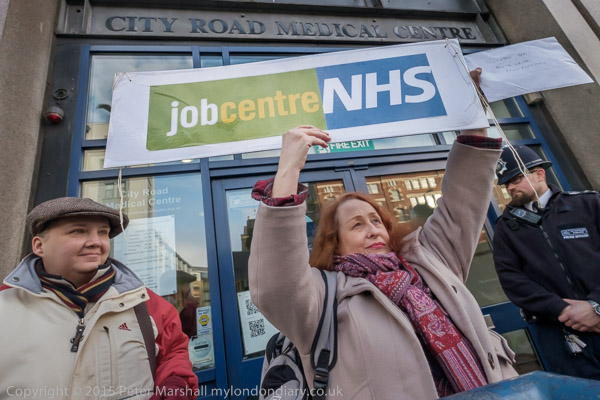
Since one of the main causes of mental health problems is workplace stress it seems odd that the current government appears to believe that somehow getting those with mental health problems into work is a miraculous cure. Of course finding suitable work can be a something which helps those who have recovered stay well, but it’s had to believe that job centres will help people find suitable work; instead they will be bullied into taking unsuitable work by advisers who get brownie points or bonuses for cutting benefits – either by forcing people into jobs or sanctioning them if they refuse.
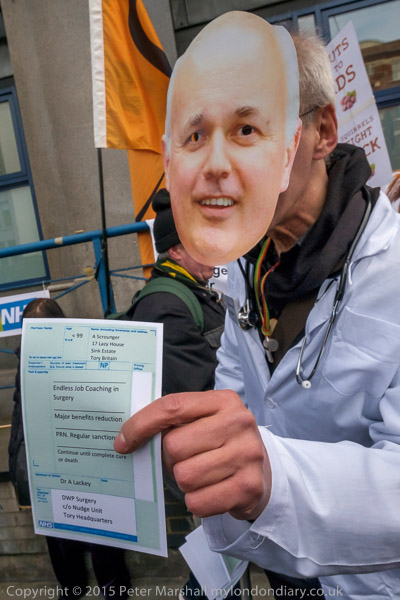
There just are not suitable jobs for the great majority of those with mental problems or with physical disabilities, and even fewer than there used to be, both with the government closure of Remploy and other sheltered work and the removal of other support. Another major reason for many people’s mental health problems is the pressure on them to find work, the cutting of various benefits, benefit sanctions, the bedroom tax and other government policies.
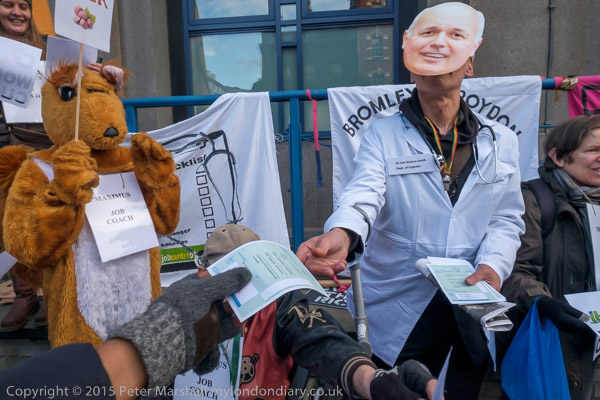
Finding disabled people fit for work through unsuitable ‘work capability assessments’ carried out by Atos and Maximus when they are demonstrably unfit is a major source of stress, and has led to many suicides. A very high percentage of those who appeal against these assessments succeed – but often only for the people concerned to be failed yet again when called in for another test. It’s perhaps an unsurprising effect of setting up a testing system that ignores medical reports and rewards the company administering the tests for failing people. It was a cruel system introduced under New Labour, but one which the coalition – even after its effects became clear – deliberately tightened the screw.
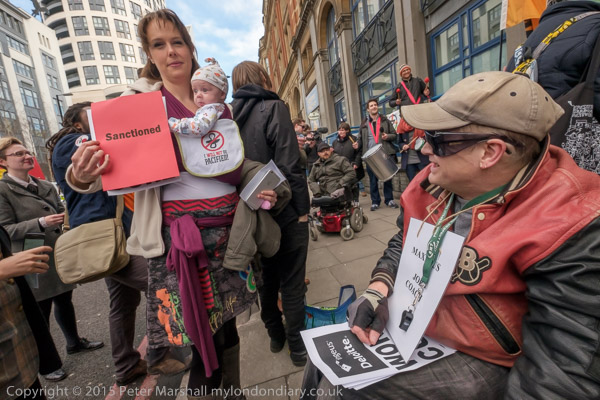
It would be hard to overstate the hate that many disabled people feel for the man who has directed the process, Iain Duncan Smith – and hard not to understand it when you hear one of them telling how eight of her friends have committed suicide thanks to his policies. He appears to combine a total lack of empathy and understanding of the problems faced by those on benefits with an outstanding incompetence.
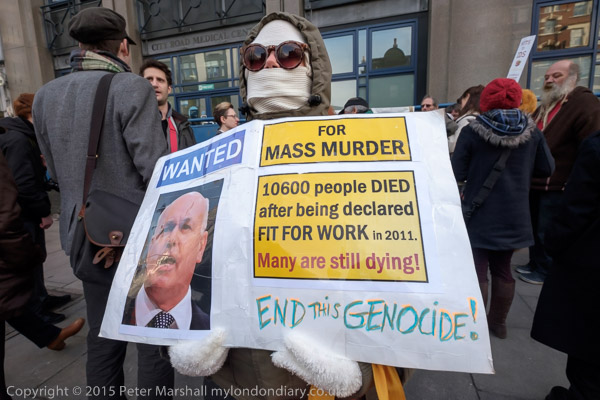
This was a difficult protest to photograph outside the job centre because the pavement it was taking place on was rather narrow and soon get very crowded. There were too many people for the space and too many of us trying to take pictures. It was good that the protesters had plenty of props and costumes, but it was perhaps too elaborate to tell the story clearly, at least visually. I think it would have been easier in video.
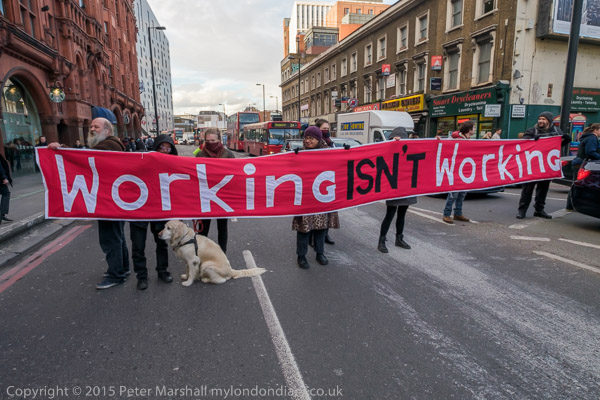
Things were simpler once the protesters began to march, and although the police didn’t seem to know what was happening, I think it was fairly obvious that they would attempt to block the Old St roundabout. Which they did for some time. As usual disabled protesters gave the police a problem; most have a genuine concern about manhandling disabled people, while others realise how it would look in the media. For both reasons they hang back from taking action for rather longer than would be the case with able-bodied protesters – though many of those taking part were not disabled.
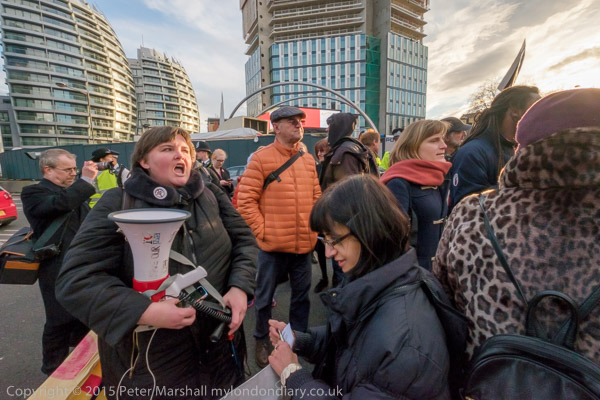
But eventually the police would have had to take action, with one of London’s major junctions taken out, and DPAC realise they can only push things so far. After blocking the roundabout for around 20 minutes, Paula Peters of DPAC announce it was time to leave.
I wrote a fairly lengthy account of the action on My London Diary at No Job Coaches in GP Surgeries, and as usual there are plenty more pictures there. But although I took quite a few usable images, I didn’t manage to get one that really stood out and summed up the protest in the way I would have liked; but perhaps the issues were too complicated for that.